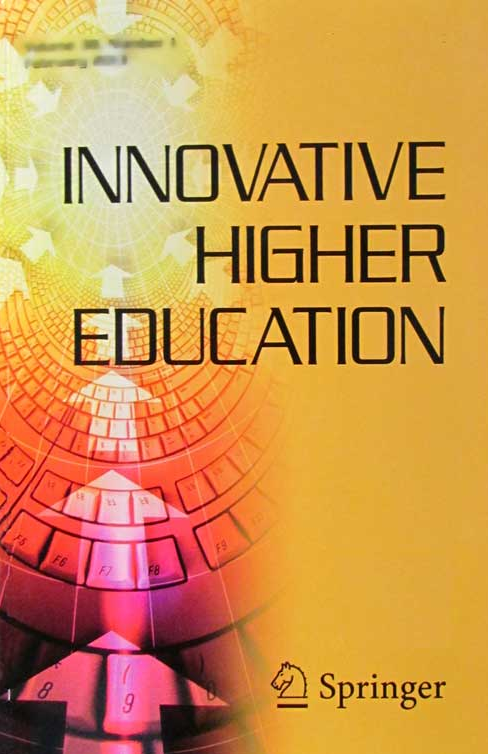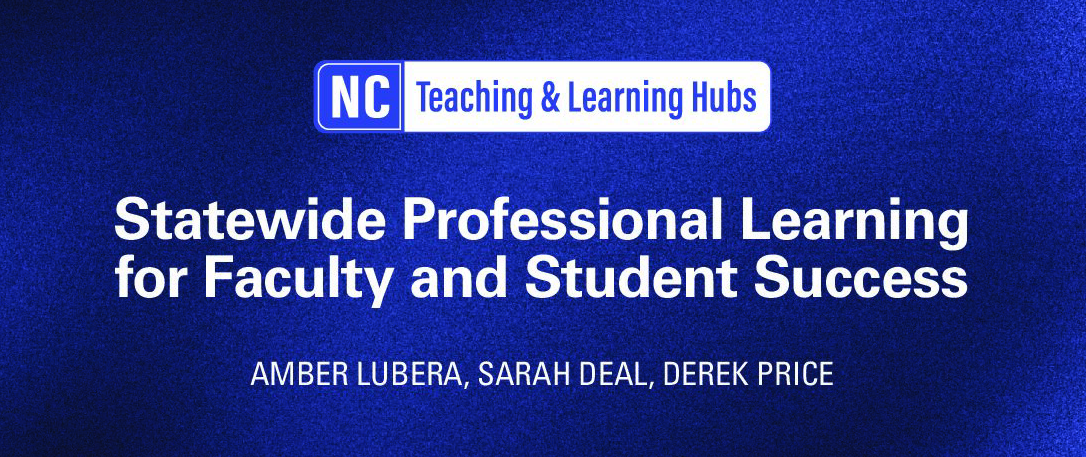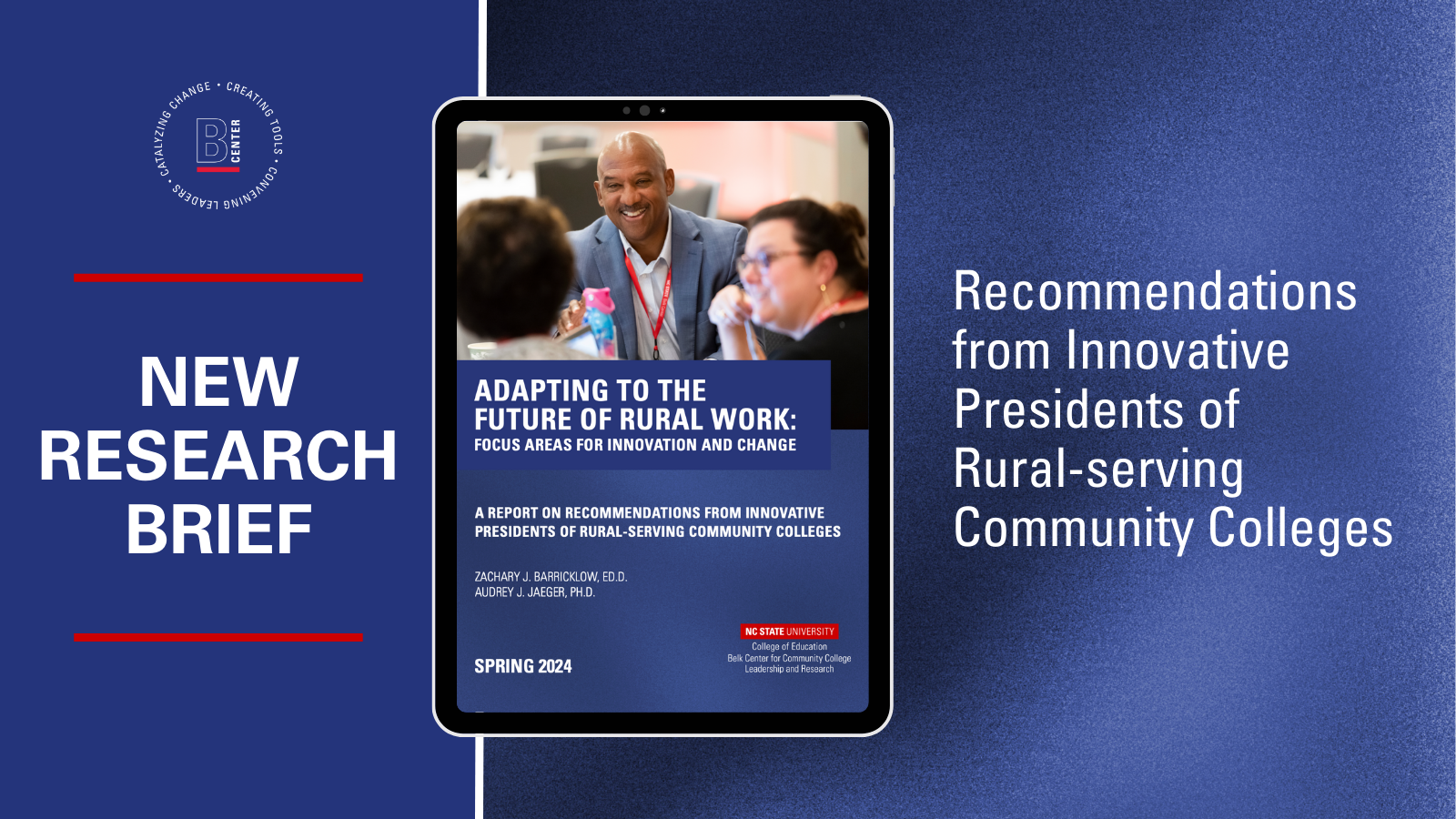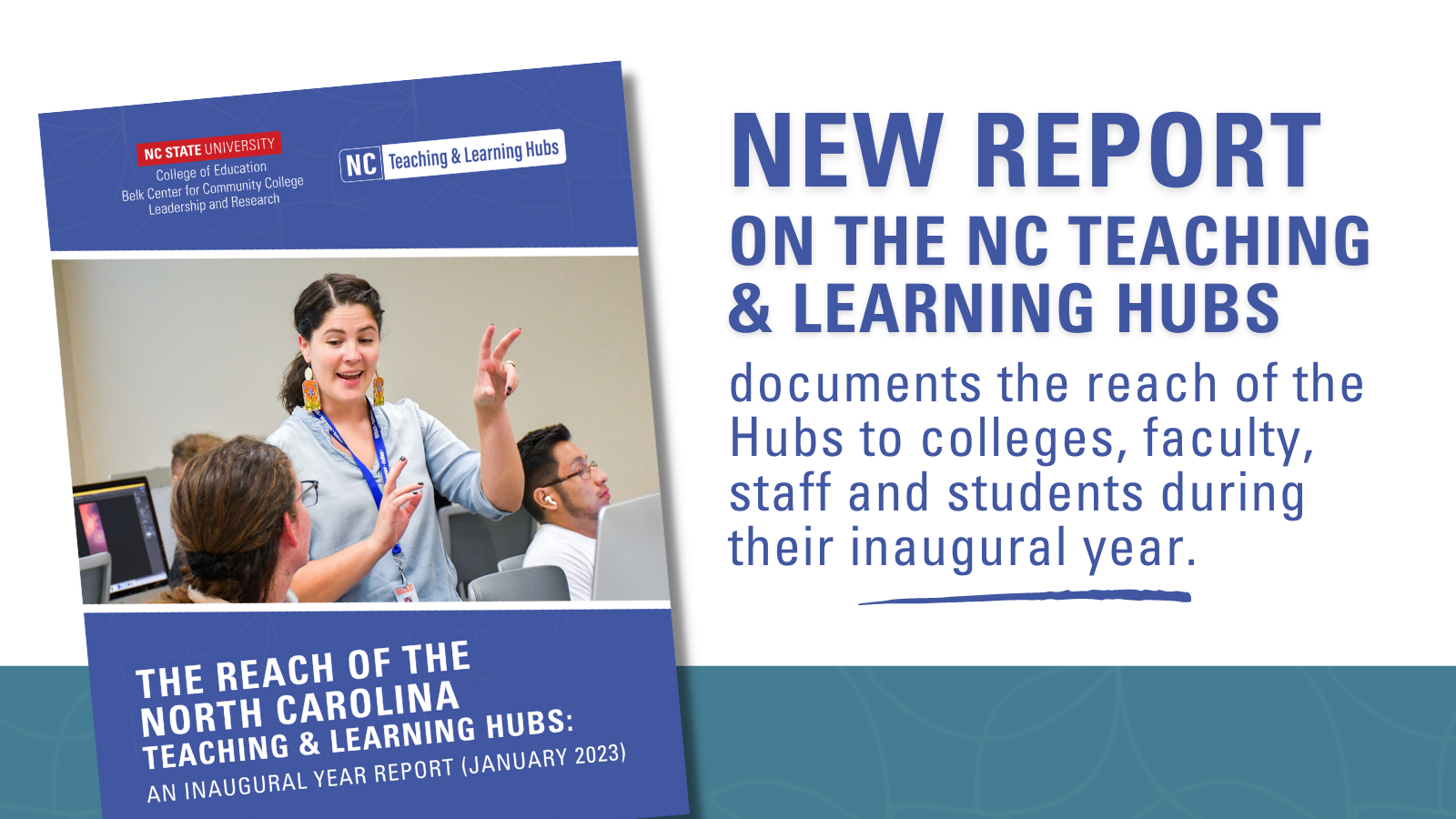Supporting Community College Adult Learners with the Five Ps: Public Messaging, Partnerships, Processes, Pathways and Proximity
Anthony’s first foray in postsecondary education started two decades after graduating high school. He spent nearly twenty years in the workforce – working full-time in retail management – before deciding to enroll at Davidson-Davie Community College in Thomasville, N.C.
In hopes of expanding his career options and potentially opening his own business, Anthony is earning his associate degree in business administration – while simultaneously working more than 50 hours a week as a store manager at Advance Auto Parts and keeping busy as a father of four.
Across the state of North Carolina and around the nation, more than half of enrolled community college students are adult learners, like Anthony, aged 25 and older. Many of them balance their studies with full-time jobs and families to care for, and many of them have different needs and barriers than their younger counterparts. Accordingly, they face unique barriers and challenges as they learn to navigate the complex community college ecosystem as adult learners.
Remaining responsive
Recognizing this significant demographic shift, community colleges are taking strides to recruit and reengage adult learners while also remaining responsive to their unique needs. To that end, the John M. Belk Endowment established NC Reconnect, a partnership between public, private and nonprofit organizations, to increase adult learner enrollment and completion rates at community colleges across North Carolina.
As part of NC Reconnect, the Belk Center for Community College Leadership and Research (Belk Center) has conducted numerous research and evaluation efforts focused on the adult learner journey – including interviewing adult learners and collecting and analyzing data from stakeholders belonging to NC Reconnect teams. Using interview data, the Belk Center established the “Five P Framework” grounded in five essential factors related to adult learner success in community colleges: public messaging, partnerships, processes, pathways and proximity.
Public messaging
For many adult learners, public messaging played a significant role in their community college journey. Through various email marketing and communication efforts, students were encouraged to enroll and gain skills to expand their career opportunities.
These messages started grabbing Anthony’s attention shortly after he completed high school – and finally motivated him to enroll nearly two decades later.
“Over the years…they’ve sent [several] letterheads and emails out, saying ‘It’s never too late to go get your degree,’” he says.
Ongoing communication and personal emails have also motivated many adult learners to re-enroll and continue their academic journeys – especially after seasons of bereavement or taking breaks due to demanding work schedules.
“About two years ago, [they reached] out to me [and] inspired me to go back,” Anthony continues. “I did a semester [and] realized that with my schedule at that time, I wasn’t able to do it, so I took a little bit more time off and then once again, I got the email – probably around springtime of this year – about re-enrolling and getting back on course with my degree.”
Partnerships
Partnerships with employers, community and government entities have also been instrumental in the adult learner journey. These varied partnerships serve a variety of needs related to recruiting, retaining and supporting adult learners.
One example is Single Stop at Davidson-Davie Community College – which helps students access various government and community resources to alleviate economic barriers and find assistance with needs ranging from childcare to pantry items.
“[If] you’re down and you need that extra pick-me-up and stuff, those programs are there to help you and assist you,” Anthony says. “They’re not shy about telling people about [them] either…it’s plastered on emails, on the campus itself, the websites.”
Processes
Remaining responsive to adult learners also includes ongoing evaluation of institutional processes. Analyzing and adjusting processes related to enrollment and course scheduling, for instance, can significantly minimize barriers related to credential completion.
“[Davidson-Davie] has made it very easy for me with the online program – getting me in the right classes to be able to [complete my schoolwork] – whether it be one o’clock in the morning or three o’clock in the afternoon – depending on my schedule,” Anthony says. “The school has developed a very adaptive program. They adapt to each individual’s needs…They foresee the opportunities that might present [themselves] and they find solutions.”
Pathways
In addition to simpler and adaptive processes, adult learners also benefit from clear curricular pathways and academic advising services that decrease their time-to-degree and advance their career opportunities and earning power in the future.
According to Anthony, Davidson-Davie Community College has supported him in numerous ways to help him complete his associate degree in a timely fashion and position him for transfer to a four-year college.
“[They] have opened up all the options for me to be able to do this and be successful and complete it so that by 2025, I’ll have my degree,” he says. “And…more than likely, I will move to transferring [and] going after a bachelor’s degree…because there are several avenues I want to go down that require a bachelor’s degree or higher.”
He notes that his advisor has played a particularly important role in the process.
“He pointed me to the right people [and] made sure that he got my classes set up or corresponding to what I needed to take. We even had to change around a few of the classes and he got them dropped and got the new ones added…he’s been phenomenal throughout this entire process.”
Proximity
Proximity, too, is an indispensable part of the adult learner journey. Proximity to personal and practical support systems significantly affects proximity to degree completion – which is why fostering a deeper sense of connection to the community college is so important.
For Anthony, that sense of proximity came primarily through meaningful relationships – such as his advisor and NC Reconnect coach – and access to resources on campus.
“The amount of resources that the college gives to people who’ve been out of touch with school for the past [several] years…[make] the transition smooth and [remove] those barriers and those walls that come up that could possibly discourage you from continuing,” he says. “As long as they just keep those avenues open and keep the doors opening for anything and everything we need – like they are now – I don’t see a reason why we couldn’t all be successful with this.”
Leveraging the Five P Framework
For more on the Five P conceptual framework, please visit the Belk Center’s new open-access article published in Innovative Higher Education. The publication offers a robust overview of the adult learner journey, additional examples of the five essential components in action and several recommended applications for practice, policy, research and evaluation.



